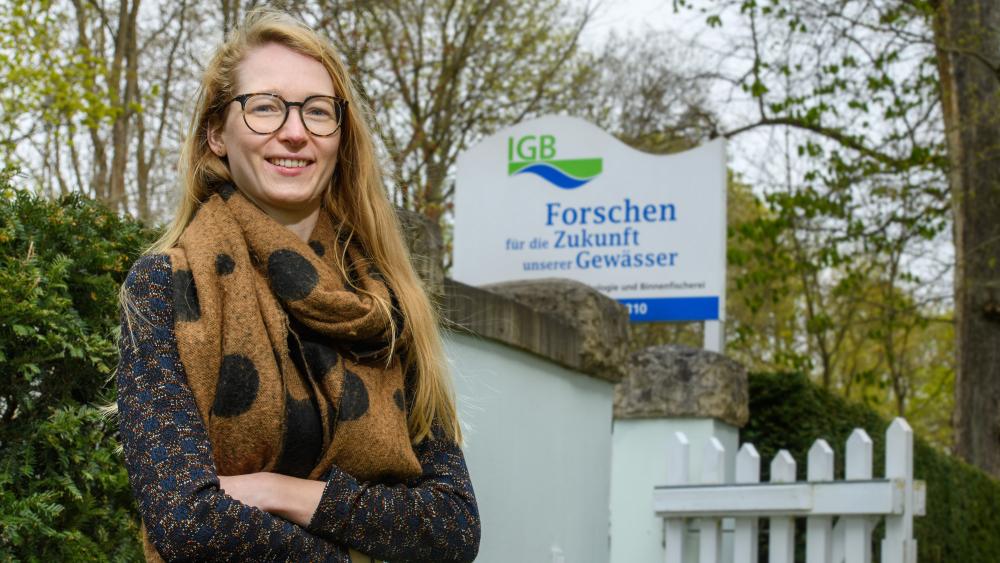
Lynn Govaert leads new Emmy Noether research group. | Photo: David Ausserhofer
"I always had a fascination for traits, and how traits change and evolve. The awareness that trait evolution can actually occur fast and interact with ecological dynamics has sparked my research interest in eco-evolutionary dynamics. My research interests lie in quantifying the contribution of ecological and evolutionary processes and how they interact in shaping communities and metacommunities in their response to environmental change. In my work, I combine the development of conceptual and methodological frameworks with the creation of theoretical models, and test this theory with experimental approaches such as microcosm experiments," Lynn Govaert described her research approach.
Evolution and community processes shape the response to environmental change

Ciliates under the microscope. | Photo: Lynn Govaert
As part of the Emmy Noether Programme, Lynn Govaert's team is investigating how key evolutionary processes (e.g. selection, genetic drift, gene flow and mutation) and community processes (e.g. species sorting, ecological drift, dispersal and speciation) interact to shape the response of species and communities to environmental change. Ciliates serve as a model system to test the theoretical questions developed in the research team. Being unicellular organisms, ciliates are easy to maintain and manipulate in the laboratory. Because of their fast generation time, they are an ideal model system to study contemporary evolution and its effect on ecological processes.
"In the Emmy Noether project, we will set up different microcosm experiments with genetically and species-specifically different freshwater ciliates to arbitrarily construct communities of varying genetic and species diversity. These experiments will then be complemented with theoretical models to improve mechanistic and predictive understanding. Finally, we want to understand how these eco-evolutionary dynamics play out in natural communities by conducting field work. I'm excited to see how reproducible the dynamics will be in the experimental communities we build, and whether the theoretical models that encompass these different processes can match the data and improve our understanding of species and community responses to environmental change. All of this will help answer the question of whether we can predict species and community responses to environmental change based on the strength of these key interacting evolutionary and ecological processes," said Lynn Govaert.
Emmy Noether enables outstanding researchers to achieve professorship
The Emmy Noether Programme of the Deutsche Forschungsgemeinschaft (DFG, German Research Foundation) is for outstanding young researchers. The qualification is to be achieved by independently leading a junior research group at a university or research institution in Germany in conjunction with teaching duties. In this way, the career step to a professorship is possible without a habilitation. With the help of this programme, outstanding young scientists from abroad are also to be (re)attracted to the German science system.






